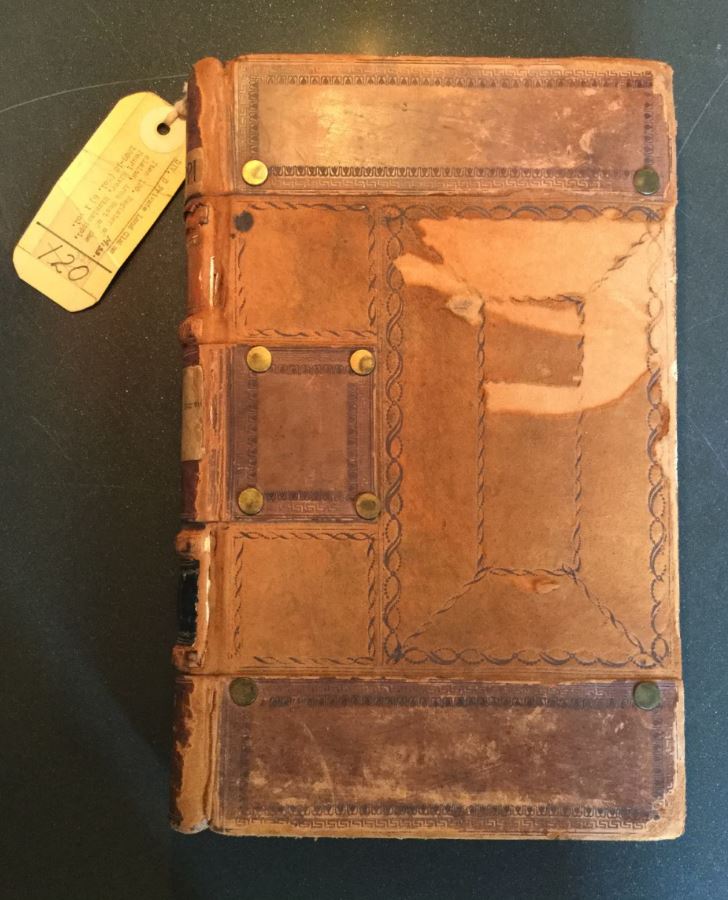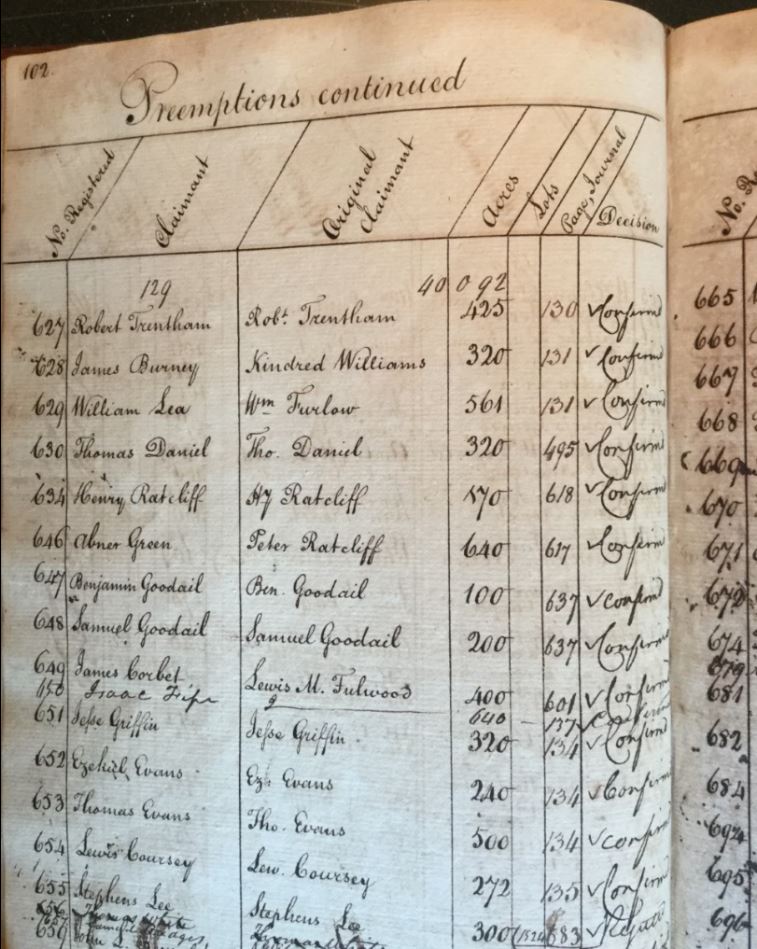As crusades go, this may be a lost cause. I am determined to find historical evidence proving that the Martin “Frentham” who arrived in Natchez, Mississippi in 1788 was Martin Trantham, Jr., my 6th great grandfather. And that the Robert “Trentham”, who not only appeared but stayed, was Martin’s son. The “Holy Grail” of evidence is an affidavit filed by “the widow of Martin Trantham” sometime after 1810. In it, she documented her rightful claim to 640 acres of land situated along the Mississippi River. According to her, this land had been “granted” to her now-deceased husband, Martin Trantham, by the Spanish governor himself. (640 acres isn’t random – it was the amount of land awarded to privates who fought in the American Revolution – but why was the Spanish governor involved?? That’s another mystery.)
I know of the affidavit because it is mentioned in a report prepared for Congress. When the United States gained control of this area, it must have been quite a mess sorting out who owned what considering Britain, Spain and France ruled these lands at one point or another. Unfortunately, lots of folks tried to take advantage of this situation and filed fraudulent land claims. Many of these documents survived. And so, I packed my backpack with research knickknacks and headed off to that venerable temple of American historical Congressional documents – the National Archives. I had already done my homework on their website and identified several collections of historic materials dealing with early land claims from “Eastern Louisiana”. Would I be so lucky as to find the widow’s affidavit tucked away in one of these collections? (No.)
Armed with a stack of printouts from the website, I made my way to the Archive’s ornate research room and waited as runners pulled the various collections which I hoped contained my prize. (They didn’t.)
Now, as quests go, this one was a bust. The affidavit was not to be found. Most of the documents in these collections were letters and reports sent to Washington, D.C. by those charged with sorting through the fraudulent land claims to find the factual ones. The affidavit was likely received in the Natchez District where the reports were prepared. Thus, it never found its way to the Archives in D.C.
As a consolation prize, I did find, however, the entry for Robert Trentham’s 425 acres captured in a 200-year-old ledger. His land claim was confirmed while the widow’s was rejected. The mystery of Robert’s parentage remains a mystery, though, as does Martin Trantham’s excursion into Mississippi. As I was wrapping up my research at the Archives, my “deskmate”, who was researching Civil War pensions, suggested a trip to old Mississippi or Madrid might be in order. After all, it was the Spanish governor in Mississippi who granted Martin Trantham the land in the first place. Maybe he’s on to something!
Below are pictures I took of the ledger containing Robert Trentham’s entry. They don’t make books like this anymore! Robert’s entry is at the top. At the far right, you’ll note it says “Confirmed”.
Kenfolk: Tranthams
Relation: 6th great grandfather
Common ancestors: Martin’s father was also named Martin Trantham, my 7th great grandfather

